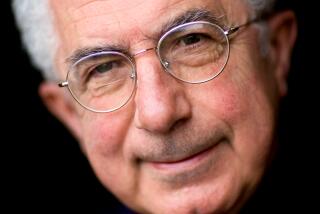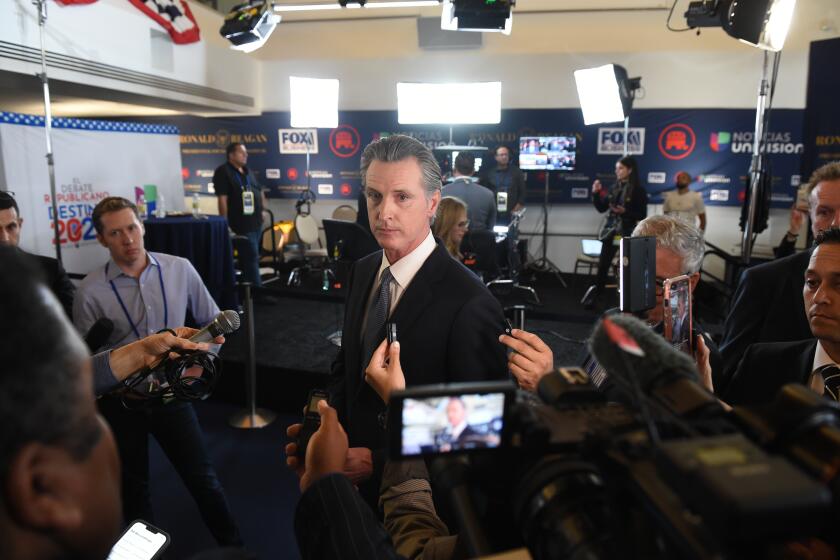Murder in the Sky : DO NOT GO GENTLE <i> by Gordon Stevens (St. Martin’s Press: $17.95; 382 pp.) </i> : THE MARTYR <i> by Jurgen Petschull, translated by Stephen G. Cappellari (Mercury House: $18.95; 296 pp.) </i>
It would not be an exaggeration to say that these two novels have their similarities. Each is an intended thriller, populated by a large cast of international characters, including many Middle Eastern terrorists. Gordon Stevens’ violent gang is made up of suicidal Palestinians; Jurgen Petschull’s are Shiite Muslims.
The centerpiece of each tale is the hijacking of a commercial aircraft. Stevens has selected a Lufthansa carrier. Petschull, a West German journalist, uses a true-to-life situation, the 1985 takeover of a TWA plane that resulted in the torture and murder of a U.S. Navy diver.
In both books, the weapons for the terrorists are supplied in the same manner--a member of the cleaning crew smuggles guns and explosives on board and hides them behind a panel in the lavatory. And, to round out the coincidences, both novels have sensitive terrorists as their protagonists.
Walid Haddad, Stevens’ main man, is by far the more empathic. In two separate instances, he saves the lives of Jewish children, at considerable risk to his own well- being. The author, possibly hoping to maintain some sort of political balance, also has his British anti-terrorist save the life of the son of an IRA dynamiter.
Stevens also provides us with examples of the games terrorists play to win the hearts and minds of their captives. For example, Haddad maneuvers airport officials into refusing to provide medicine needed by one of the captives, thereby allying persecuted with persecutors.
Stevens tells his complicated yarn in short chapters that hop from one set of characters to the next. This would normally keep the action bouncing along, but the author’s touch is not light. (This might be assumed from just his title. Dylan Thomas’ poetry stands very nicely on its own but sounds a bit pretentious when segmented into titles of books not actually written by Thomas.) And he relies too heavily on coincidence. Though the tale spans several continents, by some quirk of fate, many of the main characters have previous encounters before the hijack. Even worse, there is a ceaseless strain of sentimentality that dampens all tension and makes this would-be thriller anything but thrilling.
Petschull’s tale, as translated by Stephen G. Cappellari, is much more successful and, consequently, more disturbing. Instead of merely crafting a fiction in the manner of a Forsythe or a Follett--no mean feat, in itself--he presents most of his material in a straightforward, impersonal style. His description of the hijacking, mixing fiction with fact, is a splendid job of mock reportage. As is his portrait of the titular self-styled martyr, Hussein Ali Bakir.
Petschull’s writing loses some of its power and inventiveness when he takes us through Hussein’s murder trial in a Florida court, and some of its objectivity during the terrorist’s execution. But he makes his point: Some forms of retaliation against terrorism accomplish little more than the creation of martyrs. And martyrs are the food of religious wars.
More to Read
Sign up for our Book Club newsletter
Get the latest news, events and more from the Los Angeles Times Book Club, and help us get L.A. reading and talking.
You may occasionally receive promotional content from the Los Angeles Times.






